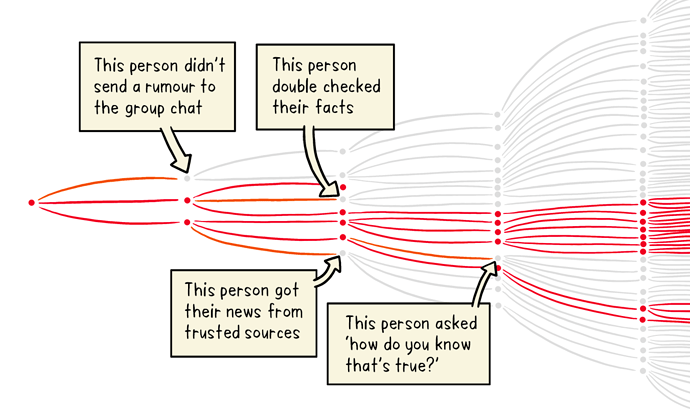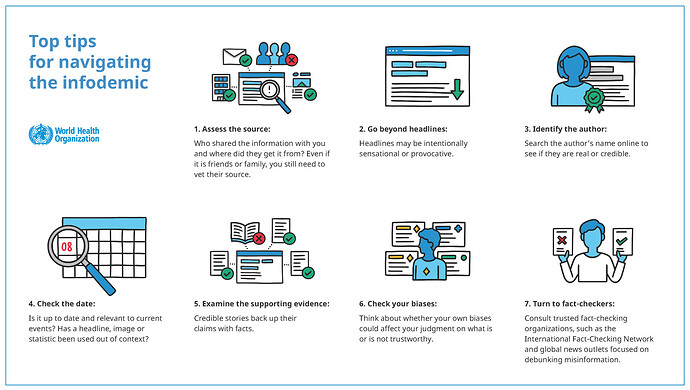Some SAGE (har har) advice here from our Great Reset loving friends at the W.E.F. -
‘Since the start of the pandemic there’s been a surge in false information, exploiting people’s fears and anxieties about COVID-19’.
Indeed.
Are you an infodemiologist? Here are 7 tips on how to spot false information about the pandemic
- An infodemic of misinformation and disinformation has emerged around COVID-19.
- This ranges from false cures to conspiracy theories about the virus itself.
- The World Health Organization has released tips to help sort fact from fiction.
- Always check sources and be aware of your own biases.
The COVID-19 pandemic has been accompanied by a wave of unreliable information about the virus. So how do we know who and what to believe?
“Infodemiology” – studying the flood of information about the pandemic and how to manage it – is something the World Health Organization wants us all to become well-versed in. And it has devised some simple tips to help us decide what we can and can’t trust.
Whether it’s misinformation (false information that wasn’t created with the intention of hurting others) or disinformation (false information created with the intention of profiting from it or causing harm), the WHO says it spreads just like a virus, passing from person to person.
The WHO says false information spreads like a virus, resulting in potentially harmful or dangerous information taking over many people’s newsfeeds.
Image: WHO
Since the start of the pandemic there’s been a surge in false information, exploiting people’s fears and anxieties about COVID-19, according to research by PwC. This ranges from false cures to conspiracy theories about the virus.
So to help halt the “infodemic”, the WHO suggests applying these tests to any information you hear about COVID-19.
1. Assess the source
Who passed on the information and where did they get it from? Always vet their source yourself; don’t take their word for it, even if they are family or friends. Check how long social media profiles have been active, their number of followers and their most recent posts. For websites, search for background information and legitimate contact details. Other signs that an online source is unreliable include spelling mistakes, too many capital letters and exclamation marks.
2. Go beyond headlines
Don’t be influenced by just the headlines – read the entire story and use non-social media sources like newspapers, podcasts and news sites to check the veracity of a headline. “Diversifying your sources allows you to get a better picture of what is trustworthy,” says the WHO.
3. Identify the author
Search the author’s name online to see if they are real or credible. If they claim to be a professional person, check for their profile on LinkedIn. If they say they are an academic, look on the website of the institution to which they say they belong.
4. Check the date
The WHO says you should always ask these questions when you come across information: Is this a recent story? Is it up to date and relevant to current events? Does it have a headline, image or statistic that has been used out of context?
Tips for handing the infodemic.
Image: WHO
5. Examine the supporting evidence
Credible stories source their facts by including quotes from experts or links to statistics or studies. Verify that experts are reliable by searching for them online and follow links to check they really do back up the story.
6. Check your biases
Our personal biases shape how we see the world. Ask yourself why you have been drawn to a particular headline or story. How did you react to the story and why?
7. Turn to fact-checkers
There are more than 300 fact checking organisations in 84 countries, according to research by Duke University, many of which are members of the International Fact-Checking Network. Global news outlets which employ fact-checkers include the Associated Press and Reuters.

